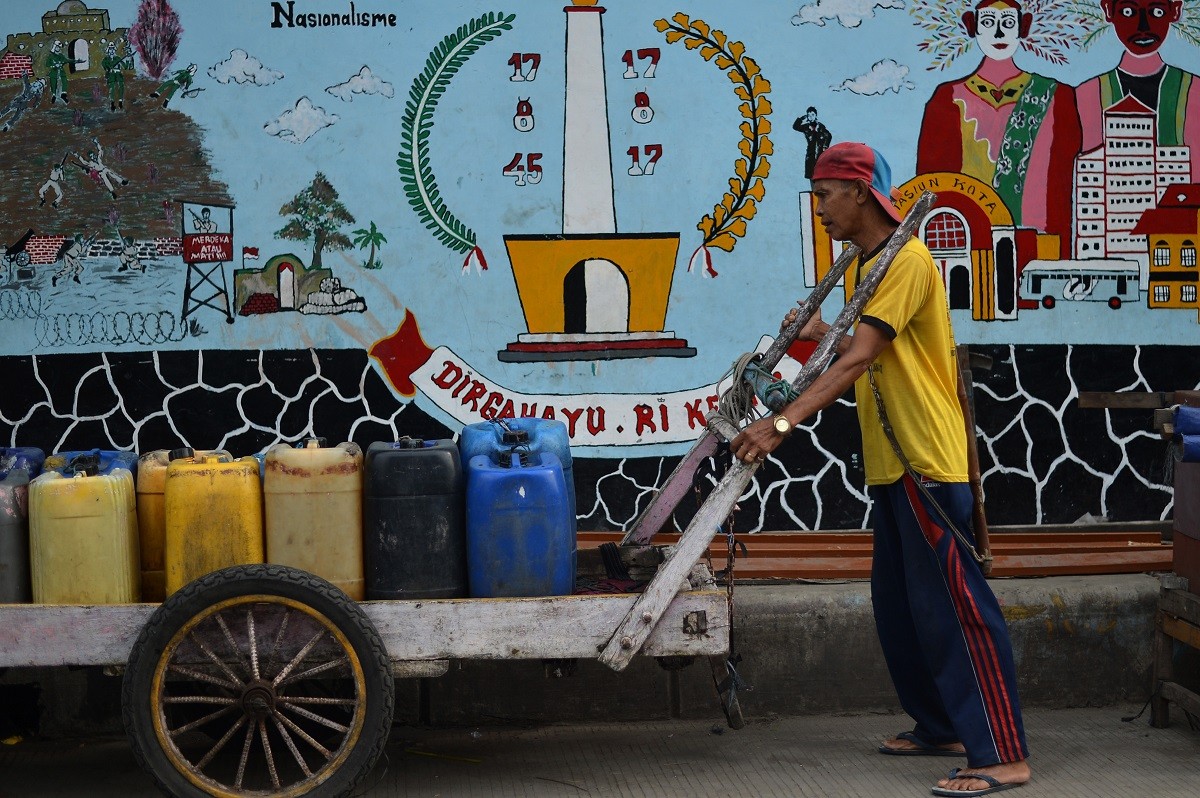Popular Reads
Top Results
Can't find what you're looking for?
View all search resultsPopular Reads
Top Results
Can't find what you're looking for?
View all search resultsWatershed water law
After four years of not having an up-to-date water law, the House of Representatives passed on Tuesday a law on water resources that is meant to prioritize public access to Indonesia’s fresh water as mandated by the famous Article 33 of the 1945 Constitution, which reads, “the land, the waters and the natural resources within shall be under the powers of the state and shall be used to the greatest benefit of the people”.
Change text size
Gift Premium Articles
to Anyone
A
fter four years of not having an up-to-date water law, the House of Representatives passed on Tuesday a law on water resources that is meant to prioritize public access to Indonesia’s fresh water as mandated by the famous Article 33 of the 1945 Constitution, which reads, “the land, the waters and the natural resources within shall be under the powers of the state and shall be used to the greatest benefit of the people”. The new law is to replace the old 1974 Water Law that was reinstated in 2015 after the Constitutional Court revoked the 2004 Water Law, ending years of legal vacuum and providing stronger legal grounds for managing domestic water resources.
The new law provides more recognition of water as a public commodity. In catering to nationalistic arguments during the 2015 judicial review, that the 2004 law’s openness to privatizing water resources management violated the 1945 Constitution, the new law would require private businesses to seek licenses from surrounding central or regional governments when accessing local water.
The private sector is also last in order of priority to access domestic water sources: Only if the water supply in a given area is in surplus after taking into account public demand can other parties get access to it. The top priority for commercial use of water is for state-owned enterprises, regional government-owned enterprises and village administration-owned enterprises.
This appears to be the win-win solution sought by the government and House in prioritizing public access to water while still ensuring businesses can manage their need for water accordingly. Forcing the private sector to cooperate with public institutions or enterprises to be able to access water, requiring them to have a guarantor bank involved in water management and making them allocate 10 percent of their business profits to water conservation — as previously intended in the earlier draft of the water bill — would disrupt the business climate.
Deliberations over the bill started at the end of 2017 when the nationalistic agenda took center stage in the approach to the 2019 general elections. However, stipulations deemed crucial for business players were turned around in the final draft, when President Joko “Jokowi” Widodo was seeking to attract more investments and boost stagnating economic growth against the backdrop of a global economic slowdown driven by a trade war.
Now that the business element is sounder, caveats of the new law concern the safeguarding of water conservation and addressing the industrial contamination of domestic water sources by public and private users. The law requires enterprises that manage domestic water pay a certain amount of money through a so-called Fund for Water Resources Management Services to be used for water conservation, among others, that will be collected and managed by a public institution, or state- or regional-owned enterprise.
Distribution of water has been unequal across the archipelago, with an overexploited Java in deficit while in areas like Papua and Kalimantan even poor citizens have access to abundant water. Going forward, the national and local governments should ensure that derivative regulations guarantee access to clean water by the public as it maintains a favorable climate for the private sector to use water.










